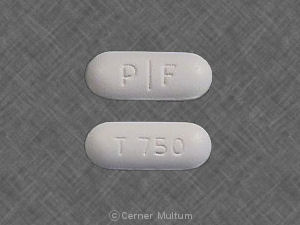Trilisate and Alcohol/Food Interactions
There are 2 alcohol/food/lifestyle interactions with Trilisate (choline salicylate / magnesium salicylate).
Choline Salicylate Alcohol (Ethanol)
Moderate Drug Interaction
GENERALLY AVOID: Concomitant use of more than one salicylate at a time may increase the potential for gastrointestinal adverse effects (e.g., inflammation, pain, bleeding, ulceration) and bruising or bleeding.
MANAGEMENT: Concomitant use of more than one salicylate at a time should generally be avoided. Patients treated with a salicylate should be advised to take it with food and to immediately report signs and symptoms of GI ulceration and bleeding such as severe abdominal pain, dizziness, lightheadedness, and the appearance of black, tarry stools.
References (2)
- (2001) "Product Information. Pepto-Bismol (bismuth subsalicylate)." Procter and Gamble Pharmaceuticals
- Cerner Multum, Inc. "UK Summary of Product Characteristics."
Magnesium Salicylate Alcohol (Ethanol)
Moderate Drug Interaction
GENERALLY AVOID: The concurrent use of aspirin or nonsteroidal anti-inflammatory drugs (NSAIDs) and ethanol may lead to gastrointestinal (GI) blood loss. The mechanism may be due to a combined local effect as well as inhibition of prostaglandins leading to decreased integrity of the GI lining.
MANAGEMENT: Patients should be counseled on this potential interaction and advised to refrain from alcohol consumption while taking aspirin or NSAIDs.
References (1)
- (2002) "Product Information. Motrin (ibuprofen)." Pharmacia and Upjohn
Switch to consumer interaction data
Trilisate drug interactions
There are 312 drug interactions with Trilisate (choline salicylate / magnesium salicylate).
Trilisate disease interactions
There are 9 disease interactions with Trilisate (choline salicylate / magnesium salicylate) which include:
- GI toxicity
- renal dysfunction
- Reye's syndrome
- hypermagnesemia
- anemia
- coagulation
- dialysis
- G-6-PD deficiency
- hepatotoxicity
More about Trilisate (choline salicylate / magnesium salicylate)
- Trilisate consumer information
- Check interactions
- Compare alternatives
- Reviews (1)
- Drug images
- Drug class: salicylates
Related treatment guides
Drug Interaction Classification
| Highly clinically significant. Avoid combinations; the risk of the interaction outweighs the benefit. | |
| Moderately clinically significant. Usually avoid combinations; use it only under special circumstances. | |
| Minimally clinically significant. Minimize risk; assess risk and consider an alternative drug, take steps to circumvent the interaction risk and/or institute a monitoring plan. | |
| No interaction information available. |
See also:
Further information
Always consult your healthcare provider to ensure the information displayed on this page applies to your personal circumstances.


